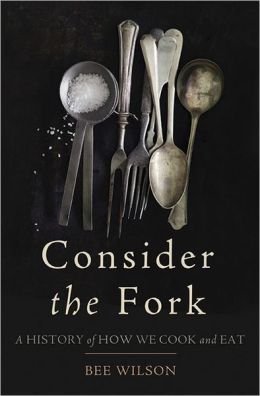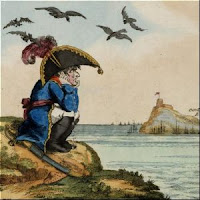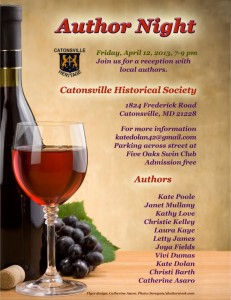 Welcome back my friend Lavinia Kent! Lavinia is known for her hot, smart, sexy and intelligent Regency Historicals for Avon. What the Duke Wants, for example. Or her very creative Real Duchesses of London ebook short story series.
Welcome back my friend Lavinia Kent! Lavinia is known for her hot, smart, sexy and intelligent Regency Historicals for Avon. What the Duke Wants, for example. Or her very creative Real Duchesses of London ebook short story series.
I thoroughly enjoyed Lavinia’s Real Duchesses series! But I’m not alone. Here are a few of the Amazon reviews:
“…she managed to capture intense emotions and give great characters even in a really short novella, so kudos!” — Stella (Ex Libris), Of Kathryn, The Kitten.
“Another fun, fresh addition to what is shaping up to be a fantastic set of novellas that feature tests to the bonds of friendship, cattiness, laughter, and the overpowering result of true love.” — Lisa Wolff, of Linette, The Lioness.
“The marriage of convenience is one of my favorite tropes in romance and Kent’s Elizabeth, The Enchantress is a magnificent marriage of convenience tale.” — Yvonne.
 Lavinia has continued the Real Duchesses of London series with a brand new novella — Georgianna: The Last Real Duchess and she’s giving away a Kindle download of the novella (or a copy of a signed copy of an earlier book) to one lucky commenter.
Lavinia has continued the Real Duchesses of London series with a brand new novella — Georgianna: The Last Real Duchess and she’s giving away a Kindle download of the novella (or a copy of a signed copy of an earlier book) to one lucky commenter.
Here’s the Amazon blurb:
Lavinia Kent returns to her iconic Real Duchesses of London series of novellas to tell the story of Georgianna, the last Real Duchess. When Georgianna’s husband. Lord Richard, unexpectedly becomes a duke, the two are brought together and then torn apart as each tries to find a place in their new lives. Georgianna had married for love – only to discover her husband’s mistress. Now the two find themselves sharing residence at the ducal estate. Are circumstance and passion enough to bring the two together? Can Richard reveal the love he has barely admitted to himself? Can Georgianna forgive him for all the hurt and lies?
Will one night of passion become a lifetime of love?
Welcome back, Lavinia! Tell us about The Real Duchesses of London series and about Georgianna, The Last Real Duchess.
I had so much fun writing this series. I loved the idea of writing about a group of strong women who would support each other during hard times. The first four novellas are definitely tied together in an overarching story.
Georgianna is more of a stand-alone story, although the other duchesses do appear.
I had originally hoped to write her story as full-length novel, but time and circumstance got in the way. I had a hard time cutting some of the earlier scenes to create something tighter, but I think in the end I succeeded in creating a novella about emotional trust.
You created quite a challenge for yourself. Both writing short novellas AND planning a series. How did you manage it?
The first four were relatively easy – except for the time pressure involved in writing a novella a month. They left me feeling a little burned out. I discovered that I get so attached to my characters when writing, that I needed more time to make the transition to the next hero and heroine.
I found writing Georgianna to be more difficult because I wasn’t following my original plan, but I still wanted to write a compelling love story.
What is risky about Georgiana, The Last Real Duchess?
Georgianna has to learn to trust a man who has completely betrayed her. Everything she believed when she fell in love and married turned out to be a big lie. She must make the decision to take a great risk, rather than live without love.
Did you come across any interesting research while writing the novella (or the series)?
I had a lot of fun researching political cartoons when I was working on the earlier four books of the series. I enjoyed thinking about the different ways information has been distributed over time. We take so much for granted today about how quickly information spreads. It was interesting to consider how differently a scandal would spread during the Regency.
For Georgianna, I researched funerals, but none of my work made it onto the page when I shortened the story. I’m saving it for later.
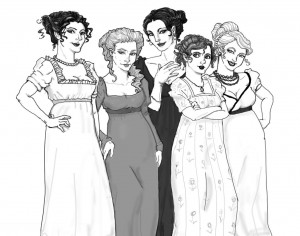 What’s the connection between the caricature of the Real Duchesses on your website and Risky Regencies?
What’s the connection between the caricature of the Real Duchesses on your website and Risky Regencies?
The fabulous Janet Mullany’s daughter drew the original sketch for the caricature. I loved it, and it helped make the characters really come alive in my mind.
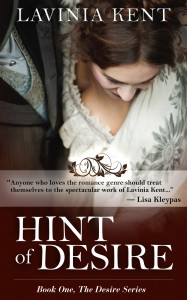 You’ve recently embarked on an indy published series. Tell us about it. How can readers find the books?
You’ve recently embarked on an indy published series. Tell us about it. How can readers find the books?
The series is called The Desire Series and consists of three books: Hint of Desire, Price of Desire, and Taste of Desire. This series is a prequel to my books for Avon. The hero of my first book, A Talent for Sin is the younger brother of the hero in Taste of Desire.
The series is currently on available on Amazon for Kindle, but I am working on increasing formats.
What’s next for you?
Ahh, the most difficult question of all. Currently, I’m working on (and about to finish) a prequel novella for a brand new regency series. This series is completely unrelated to any of the books I’ve already written.
If all goes as planned, this series will be darker and more erotic than my current books.
I’m also working on a steampunk romance that requires more world building than I’ve ever done before. It features a wonderful hero, and I’m working hard at getting him out of my head and onto page.
Thank you for having me at Risky Regencies. I love having the chance to visit.
And now my question for readers – one of whom will win either a Kindle copy of Georgianna: The Last Real Duchess or a signed copy of one of my earlier books.
At the end of the prequel I’m currently writing, the hero sends the heroine a gift. I’m debating whether he should give her a beautiful enameled hand mirror or kitten. There are reasons why each would be appropriate.
The hero has never actually seen the heroine’s face, and in the next book he will recognize the heroine because of the gift.
So, mirror or kitten? Help!

